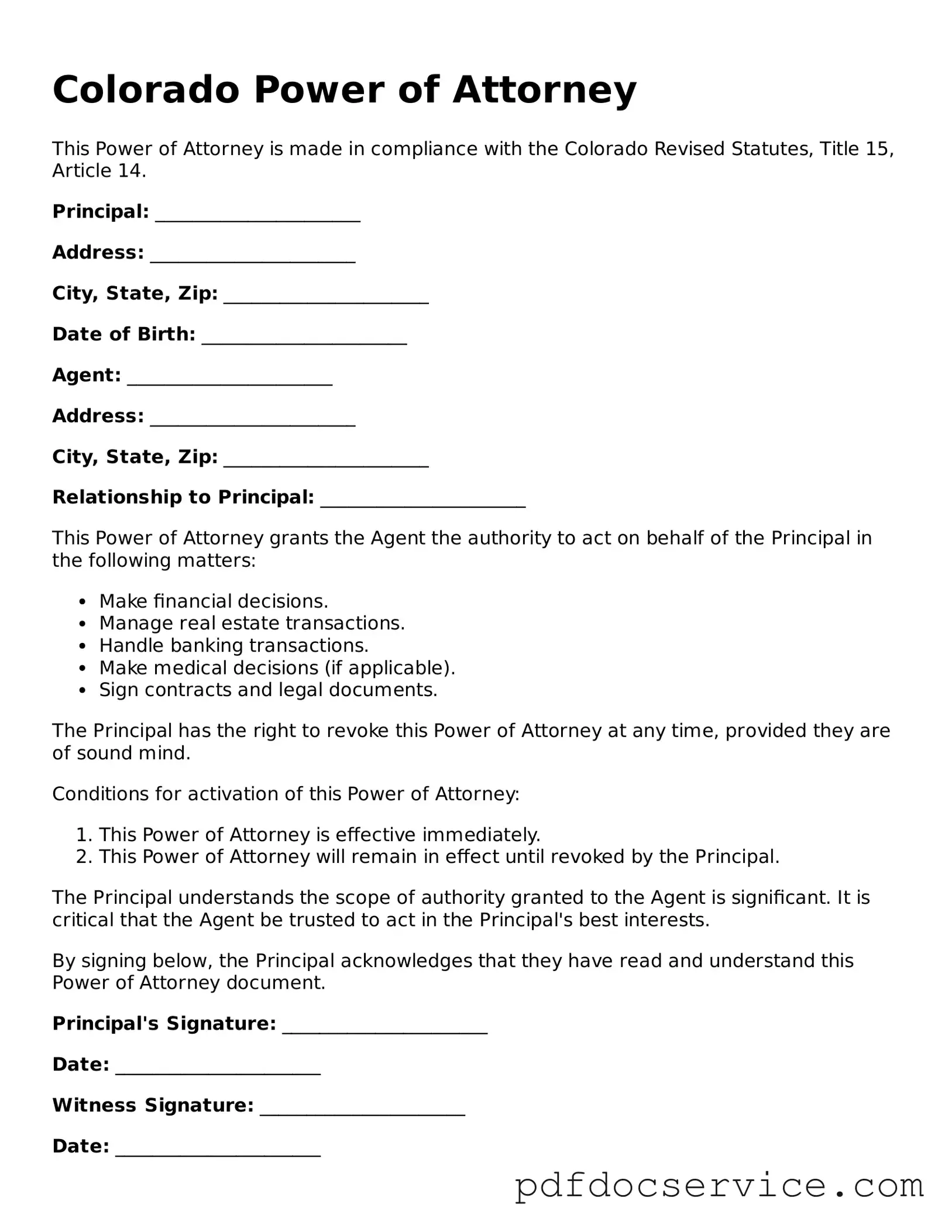Printable Power of Attorney Template for Colorado
A Colorado Power of Attorney form is a legal document that allows you to appoint someone to make decisions on your behalf. This can include financial matters, healthcare choices, or other personal affairs. Understanding this form is essential for ensuring your wishes are respected when you cannot make decisions yourself.
Open Power of Attorney Editor

Printable Power of Attorney Template for Colorado
Open Power of Attorney Editor

Open Power of Attorney Editor
or
Get Power of Attorney PDF
Finish the form now and be done
Finish Power of Attorney online using simple edit, save, and download steps.